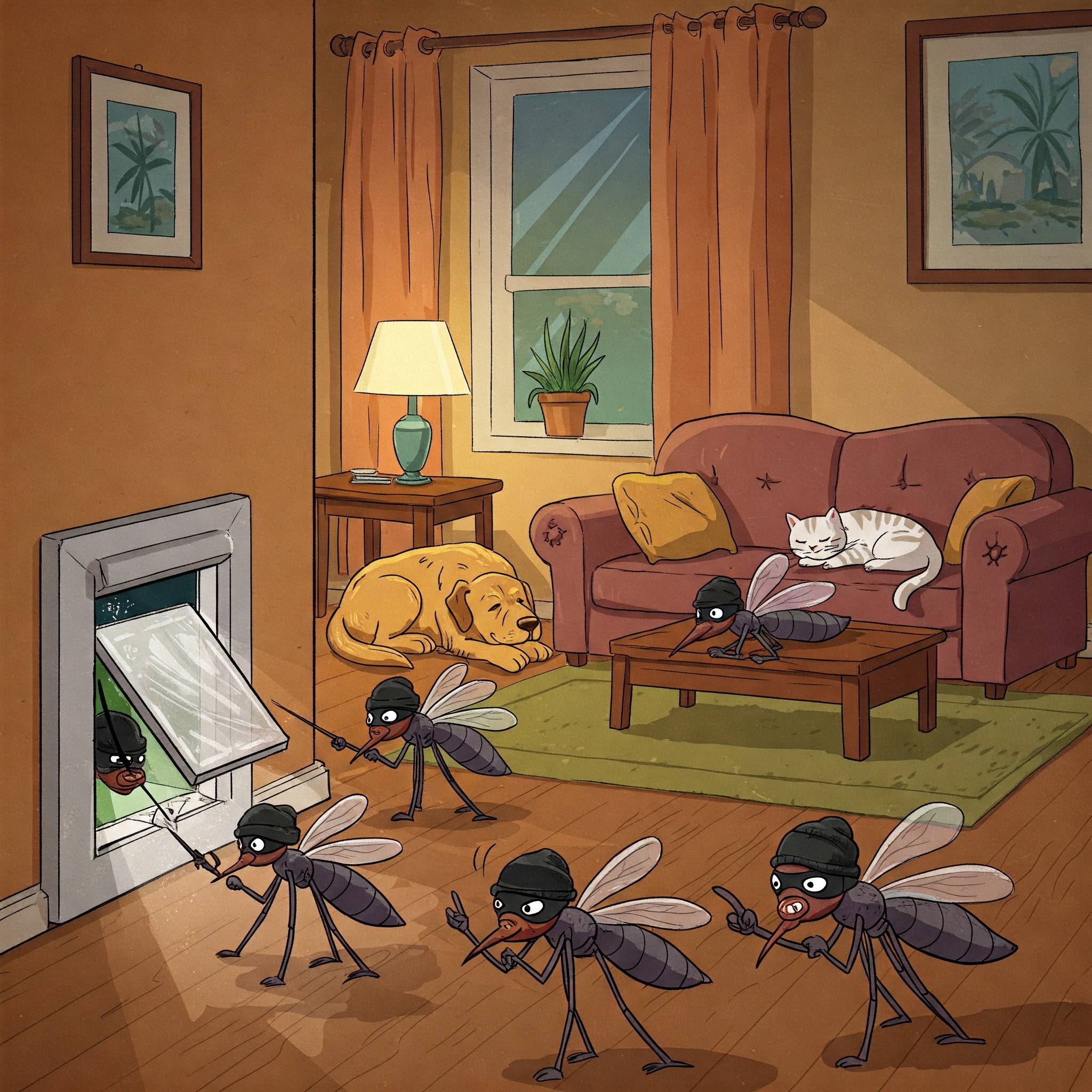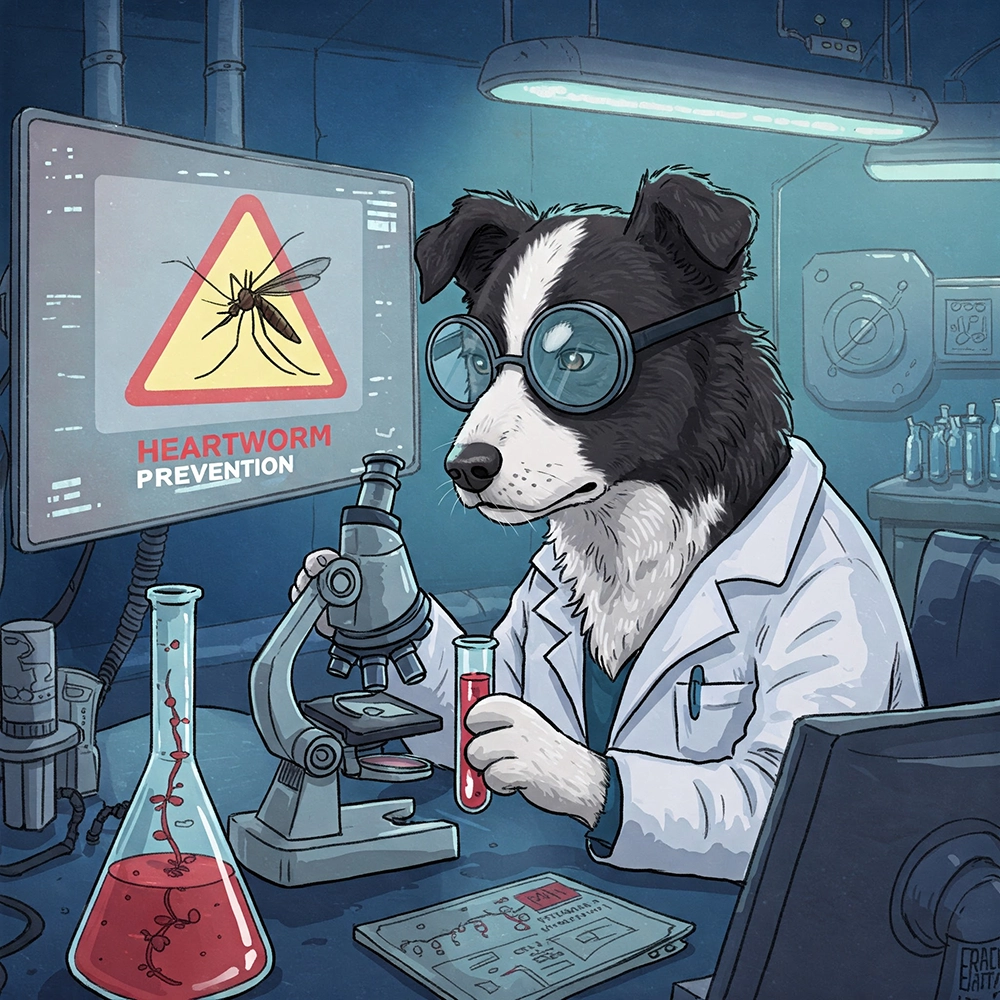As the old saying goes “the first step is acceptance”, this is especially true in pet care. Owners need to accept that any pet can pick up fleas or heartworm and your fur baby is no exception! See below for some hair-raising truths about fleas and heartworm.
HEARTWORM
-
Heartworm comes from mosquitoes. You might be surprised to learn that heartworm cannot be transmitted from your pooch pigging out at the garbage can buffet or coming into contact with another infected dog. Heartworm can only be transmitted directly from mosquitoes. When an infected mosquito bites a new victim, heartworm larvae are injected. If you’ve ever spent more than 2 minutes outside, you are probably well aware that mosquitoes are capable of penetrating through various layers of protective clothing. Similarly, despite your dog or cat having long thick fur, a mosquito is very capable of finding its way to the skin. This is especially true around the face.
-
Indoor pets are still at risk. If you have ever been fortunate enough to experience the exotic mating call of the buzzing mosquito beside your ear in the middle of the night, then you already know that mosquitoes are accomplished in finding ways into the home. In the right conditions, mosquitos can establish a nest and survive in the home regardless the time of year. Whether or not you have a strictly indoor pet, it is important to properly protect against mosquitoes.
FLEAS
-
Keeping a clean house will not guarantee protection. Outbreaks can occur in even the best cared for homes and pets. Simply having one flea enter the home can quickly turn into an infestation as they start to feed within minutes of crawling on a pet and lay thousands of eggs in short order! The numbers may jump quickly, but there are many available products to treat against fleas across every life stage.
-
The signs are not always obvious. Even if your pet is not itching, biting or chewing their skin, they could still have fleas. In fact most pets with fleas do not scratch at all! Pets will only scratch if they are allergic to the flea bite which then produces a very intense itch—this sneaky characteristic is what makes fleas such a great parasite. As a result of this, many fleas go unnoticed until there are many of them breeding on our pets! But the danger of fleas does not stop at itching. Fleas can also be responsible for the transmission of tapeworms and other diseases.
Testing is always recommended. Treating against parasites is the first step in prevention but it shouldn’t stop there. Performing hands on checks for fleas and testing regularly with a 4Dx test is always recommended. The 4Dx test is a simple blood test that screens for parasite transmitted diseases such as heartworm and lyme disease. Performing these tests on a regular basis and using safe and family fur-iendly products are essential in protecting your pet from parasite transmitted diseases. Ask the team at Sixteen Mile about what products are available to start protecting your pet today!



